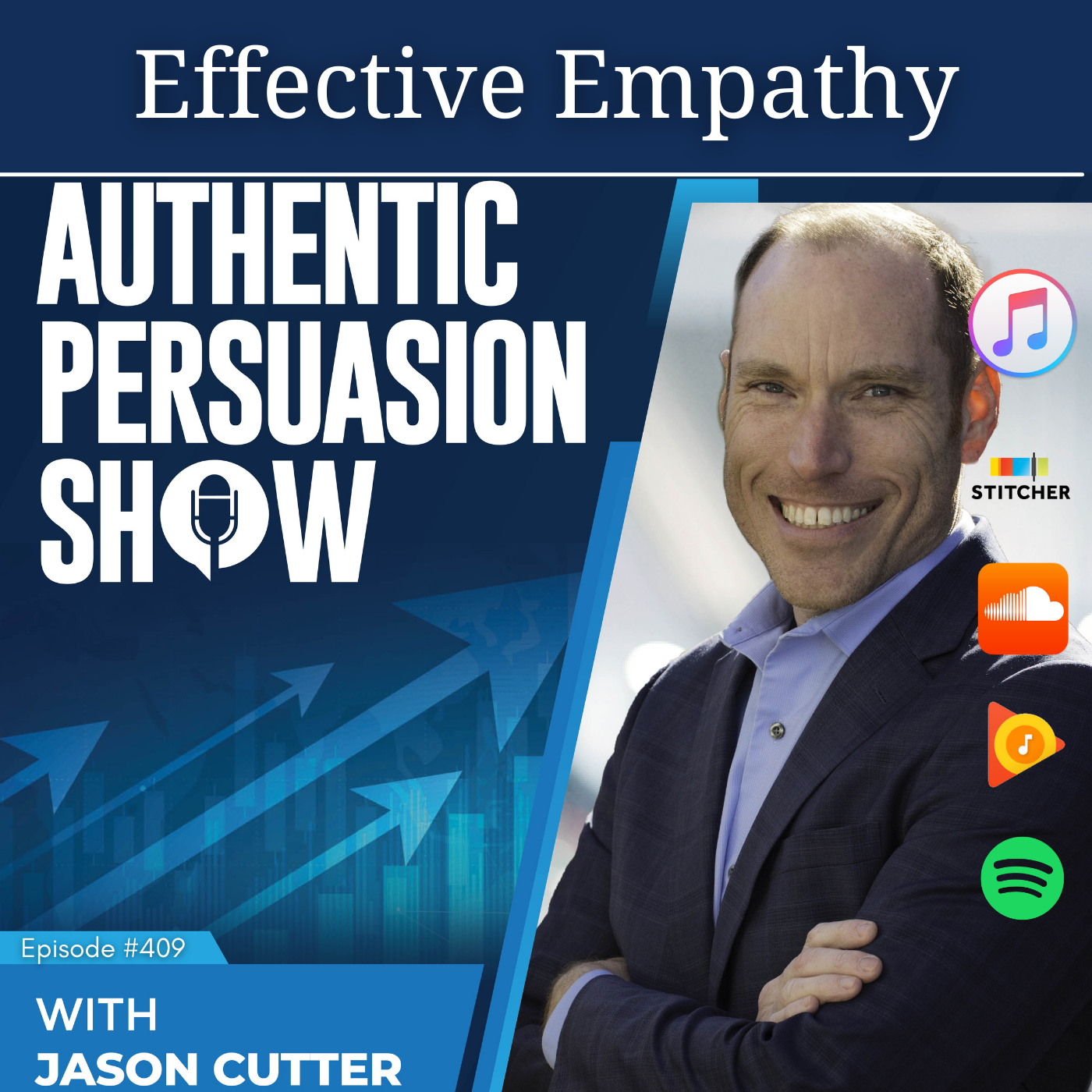Show Notes
In this episode, I answer:
- How can I overcome objections in sales without sounding pushy?
If you have any sales or mindset related questions, send me a message through the contact page or via LinkedIn.
Episode 55 – Transcript
Hello, and welcome to another episode of Ehe Sales Experience Podcast. This is Episode 55. Last episode, I did a recap in the beginning, if you didn’t catch that, listen to it because I kind of restated the mission and explained why I do this podcast.
In order for this episode to get right into the action, let’s just go right into some questions and see what we can get through today. All right.
The first question, how can I overcome objections and sales without sounding pushy?
This question is an interesting one, because I see this a lot. Whether a salesperson asked this question, or they just experience it is that if you’re not careful, as a salesperson, when you respond to somebody’s objection, or their question, whatever their issue is, they’re pushing back on something, sometimes it could be a question, it could be an issue, it could just be a statement, but you take it the wrong way, you take it as some reason why the sale might not go forward, you react.
A lot of sales, people react in a defensive way. So they instantly reply back, hit the person hard with some kind of rebuttal response. If not, careful, a lot of times, and I hear this so much, whether its clients I’m working with, salespeople I listen in on or just even out in the world in a buying kind of environment, is you hear the salesperson with a defensive tone.
They are trying to win that battle, they are trying to win that prospect convert them into a sale, and they’re trying to overcome. They get fired up a little bit, there’s a little bit of an attack mode.
You know, people who make good sales professionals are a little bit more confrontational, they’re willing to go head to head, they don’t shy away from very much. The challenges that sometimes that can come across the wrong way.
That could come across confrontational. And like I tell people all the time, you may win the battle. You might win the battle over that question and come back with the perfect answer and move them forward.
However, if you’re not careful, you’re going to lose the war. Just because you had a great answer just because you pushed back on them, if you have an attitude or it’s not the right response, or it’s not supportive for them in their sales experience, you’re going to lose the war, which means you’re not going to make the sale.
So keep in mind, first part is in answering somebody’s question or objection, or whatever that is, if you don’t want to sound pushy, make sure you watch your tone and your attitude. So, you want to remember that if somebody asks you a question, don’t take it personal, don’t take it as a battle against you a pushback, don’t take it personal as in it’s a judgment or attack on you as a salesperson. Just take it as a question and then move forward.
Another great way to deal with questions, objections, without sounding pushy, is to reverse it back on them. And do it in such a way where I call it empathetic reversing where you try to learn more about where that question is coming from.
You’ve got to be careful, because if you do it the wrong way, it’s going to make you sound even worse. If they say “Hey, is there a fee for this program?” And you say, “Yes, there’s a fee. But why is that matter? Then that’s going that’d be terrible.”
And I know you may be listening to that and laughing and thinking no salesperson would say that, and this guy’s crazy. But I’m telling you, literally, I hear that all the time. I hear people who reply back and get kind of in an attack mode because they’re taking it all personal.
There is a proper way to do it, in my opinion, which is answer their question and then ask them a question just trying to find out more. When you reverse it on them with the goal of discovering more or where that questions coming from, or what happened in the past that’s leading them to that point, it will give you some more information, and it will shift you from being the pushy salesperson to the person that’s just still trying to help them.
And again, this goes into anything you’re selling. You might think, well, I sell cars so I have to be pushy. I sell business to business, SaaS products, and so I’ve got to be pushy, and I’ve got to hit back if somebody asked me about the fee, or the financing, or the cost.
No, in my opinion, you don’t because that’s not what most prospects want these days or tolerate these days. They might buy from you or they might go through a conversation and then they may disappear and never answer your calls again because they didn’t want to say it to your face. But something you did or said, push them in that direction.
So when somebody asks you, for example, is there a contract that I have to sign? And let’s say there isn’t one, you could say “Bo, there’s no contract. But let me ask you, why is that important to you? Why is a contract matter to you?”
And they may say something that just totally blows you away, that then helps you steer the conversation in a totally different direction. I’ve seen it so many times where somebody responds to a question like that and says, “Well, I once signed up with somebody and I had to sign a contract for 12 months.
And it turned out that they were a total scam company, rip me off, when I call back, they didn’t even answer their phone and I was stuck in this contract that I paid for and there wasn’t anything I could do about it, right.”
And so you find out that information and now you can then address that. And not in a well, look at me, I’m great and I’m not not a bad person. But you can then handle it differently now that you understand where their question is coming from.
And that gives you so much more leverage, both in the persuading, selling conversation that you have so you can be more effective in that conversation. As well as just being more effective overall with communicating with that person because now you’re at a deeper level.
Now they’ve shared something with you, something that maybe hurt them in the past, or they’re worried about it or they’re worried about their credit, or they’re worried about financing, or a cancellation or return policy, whatever that might be.
Now you know something a little bit more, and then you can address that and be supportive and move forward by helping them. That’s one of the best ways to not sound pushy when somebody gives you a question and you’re trying to overcome it.
You always want to answer it as short as possible, step back, ask them some kind of follow up questions and see if you can get at their true nature of where that question came from. Because every question that somebody asked comes from somewhere.
It’s either something they’ve dealt with in the past, something that’s happened to them, that was bad, and they don’t want it to happen to them again, right. So, they dealt with some other salesperson, some other company that screwed them over, or they had a bad experience and they don’t want to have that happen again.
Or it’s questions or objections or issues that they know that somebody outside of them is going to ask them. And so they better have the answer for. Perfect example is if you’re dealing with consumers, at some point, you’re going to deal with somebody who is worried about what, let’s say their parents are going to say, or Uncle Bob or their significant other.
And so sometimes they may be asking you questions purely because they want to check that off the list in case they call their parents later on. And their parents say you bought what, you signed up for what? What about this? What about that? Did you ask them about this?
They know from experience, their parents are going to ask that. And instead of looking like an idiot, like they have in the past where they’ve either made a mistake or their parents are pushing on them or Uncle Bob, or whoever it is, they want to be prepared with all the answers to justify why they did it.
And so you it’s good to know that. It’s good to ask questions, say, “Hey, why is that important? Let me ask you why you’re asking these questions?” And again, do it with the right tone, because you can also do it terribly wrong.
“Let me ask you, why is that important to you? Well, why do you keep asking me all these questions?” That stuff will trigger things and make it go really south. So, you want to make sure you’re asking it from the right place inside, for the right reasons with the right goal.
And they might say, “Hey, yeah, my dad is going to ask me all these questions or my husband or my wife or Uncle Bob is going to ask me all of these questions or ask me these things. And I want to be able to tell them, this or that, what the fee was or contract, whatever that might be for your situation.
So keep that in mind, ask questions, get the root of that. And that’s basically should help cover it and then you can make your sale and not just in the moment, right. Part of this and this is what I talked about a lot on The Sales Experience Podcast and my whole focus is, it’s not just about making the sale today.
I could teach a lot of people how to make sales today, but they’re going to turn into terrible cancels tomorrow, terrible reviews online, lots of backlash, lots of charge backs. That’s not good, right? There are ways to get sales, that would be very short term thinking. But that’s not why I’m here, that’s not what I’m helping you with that’s not what I help my clients with and salespeople with.
The goal is long term. So not just getting the sale today but somebody who is less likely to wake up at two in the morning, freaking out and worried about what they bought or a week later, they still feel excited for what they bought, they’re still thankful.
If you were to call them in a month, would they be excited to hear from you? Would they be thankful to hear from you? And then when you ask them for referrals, would they be willing to share your information with people they know or give you direct names and phone numbers of friends, families, acquaintances, whoever they know that might need your product or service? That’s what you should focus on.
And when you deal with their objections in the right way, addressing them, handling them, and then trying to discover more, then you can get to that point where you’re closing sales, even at an amazing rate. Closing way better, maybe even then manipulative salesy salespeople that everyone is worried about, and long term clients. Whether you ever talk to them again or not, you’re doing the right thing and they’re happy long term.
All right. That’s it for another episode, another episode of me getting through one single question, but hopefully this is helpful. Hopefully, you’re enjoying this. Make sure to send me a message, CutterConsultingGroup.com, the website, you can find the contact page on there, you can find my email, send me a message.
Also LinkedIn, I spend a lot of time on there on chat. You know, send me a connection request, let’s connect. Let’s talk, let’s chat. We can even get on a phone call. I love talking about sales as you could probably tell, considering the fact that I can literally only get through one question at a time on the show here.
Hopefully, you’re enjoying it. If you have specific questions, send me a message would love to hear from you. And as always remember that everything in life is sales and people will remember the experience you gave them.
![[E55] Q&A Week: Handling objections without sounding pushy](https://episodes.castos.com/salesexperiencepodcast/images/TSEP-Cover-QA.png)


